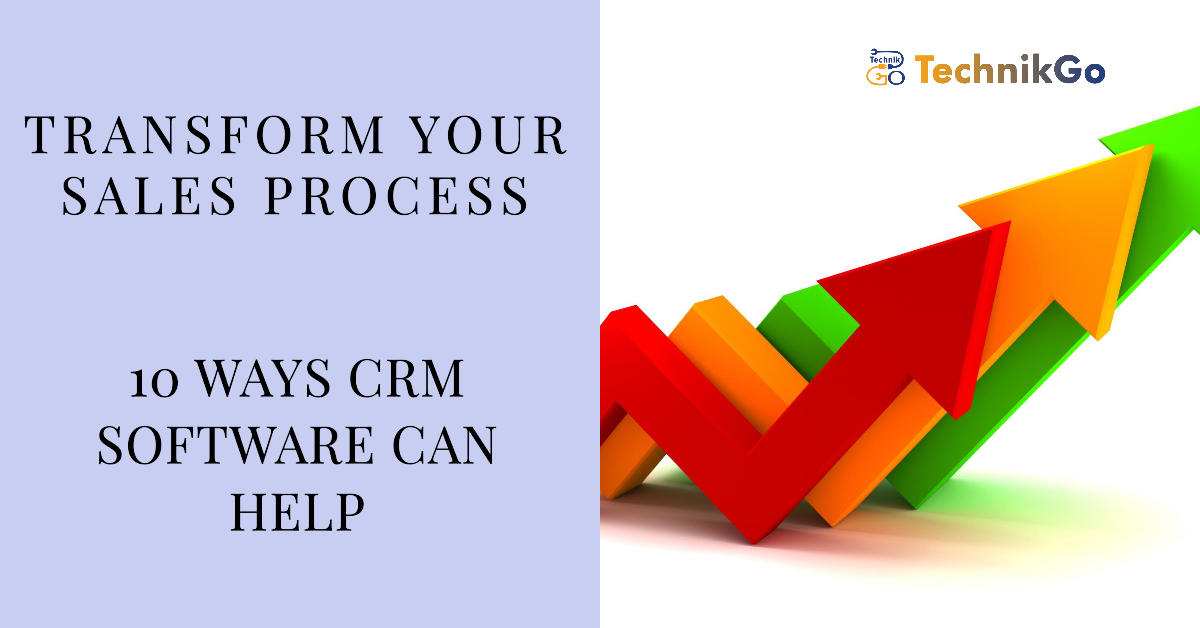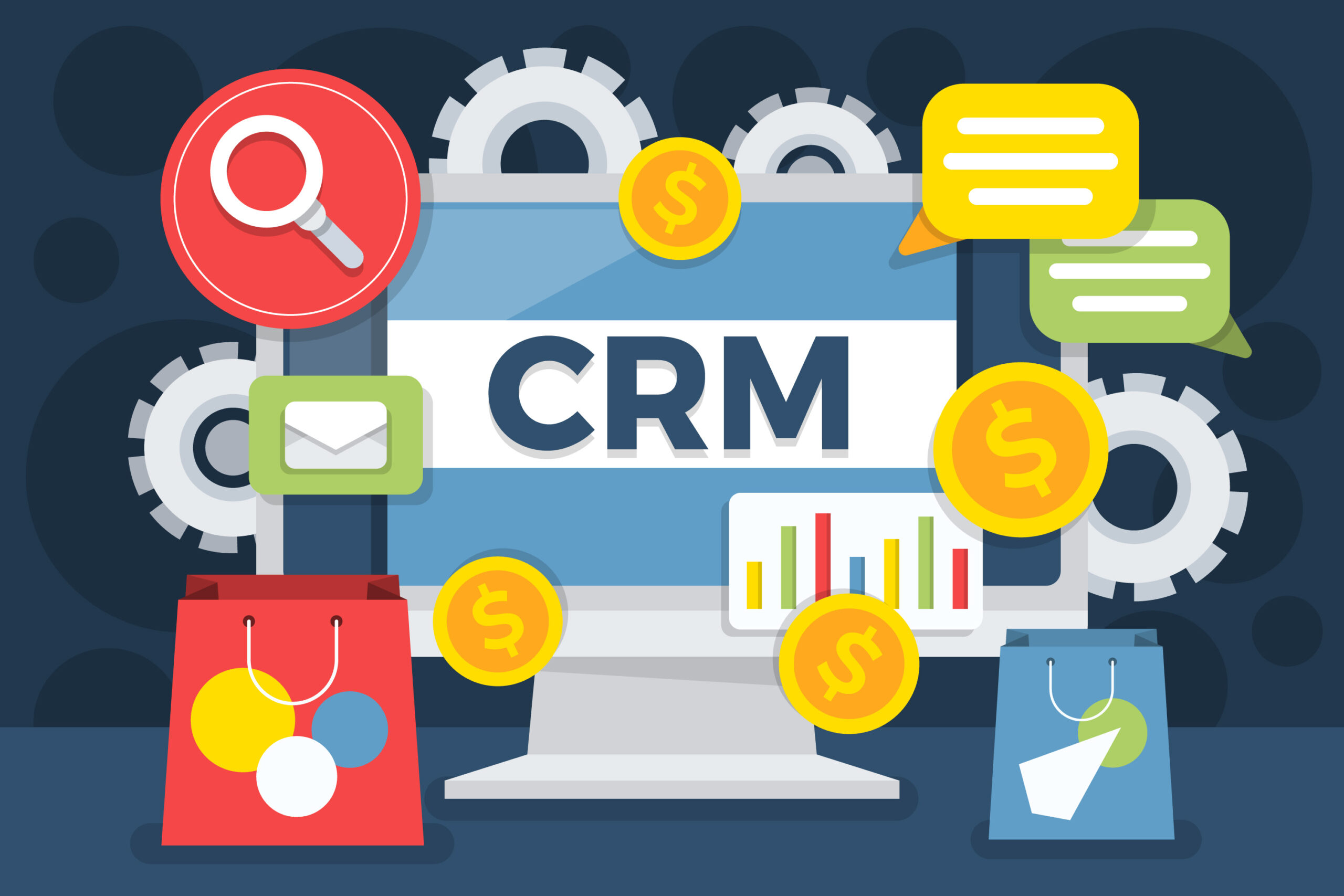
At Technikgo technikgo.com, we understand the importance of a streamlined and efficient sales process. In today’s competitive landscape, companies need every advantage they can get to close deals faster and nurture stronger customer relationships. This is where Customer Relationship Management (CRM) software comes in.
CRM software is a powerful tool that acts as a central hub for all your customer interactions and data. It goes beyond simply storing contact information; it provides a comprehensive view of your sales pipeline, helps you manage leads effectively, and automates tasks to free up your sales reps’ time.
If you’re still relying on traditional methods like spreadsheets and emails to manage your sales, you’re likely facing a number of challenges. Scattered and disorganized data makes it difficult to personalize communication with leads and customers. Manually tracking interactions and following up can be time-consuming and inefficient. Ultimately, these inefficiencies can lead to missed opportunities and lost revenue.
The good news is that CRM software can completely transform your sales process. Here are 10 ways it can make a significant impact:
Say goodbye to the days of searching for customer information across different platforms. CRM software creates a single source of truth for all your customer data, including contact details, purchase history, communication history, and any other relevant information. This centralized data allows your sales reps to quickly access the information they need to personalize communications, tailor their sales pitches, and build stronger relationships.
For example, imagine a customer contacts your support team with a question about a product they purchased a few months ago. With a CRM system in place, the support rep can instantly pull up the customer’s details, past interactions, and purchase history. This allows them to provide faster and more informed support, ultimately leading to a happier and more loyal customer.
Qualifying leads and nurturing them through the sales funnel can be a time-consuming process. CRM software helps streamline this process by allowing you to categorize leads based on specific criteria. You can then prioritize follow-ups, schedule automated emails, and track progress through the sales pipeline.
CRM software also offers powerful automation features that can save your sales reps valuable time. For instance, you can set up automated email sequences to nurture leads at different stages of the funnel. This ensures that leads receive relevant and timely information, keeping them engaged and moving them closer to conversion.
No salesperson enjoys spending hours manually entering data into spreadsheets. CRM software automates a wide range of repetitive tasks, freeing up your sales reps to focus on what they do best – closing deals. Features like automatic data capture, email scheduling, and task reminders save time and ensure that nothing falls through the cracks.
Imagine a sales rep spends 30 minutes a day entering data into spreadsheets and sending follow-up emails. That’s over two hours a week wasted on administrative tasks. With a CRM, this time can be spent on building relationships, qualifying leads, and making sales calls.
The impact of CRM on sales performance is undeniable. According to a study by Gartner, companies using CRM see a win rate increase of up to 10%. This can be attributed to the many benefits discussed above: improved lead management, better communication, and increased sales rep productivity.
CRM software also helps you identify trends and patterns in your sales data. This allows you to develop targeted marketing campaigns, personalize your sales approach, and ultimately close more deals.
CRM software empowers your sales reps with the tools and information they need to succeed. Easy access to customer data, automated tasks, and sales pipeline management tools all contribute to improved sales rep performance. Studies by CSO Insights show that salespeople using CRM achieve 27% higher win rates on average.
CRM software also provides valuable insights into individual rep performance. This allows sales managers to identify areas for improvement and provide targeted coaching to help reps reach their full potential.
CRM software breaks down communication silos and ensures everyone in your organization has access to the same customer information. This facilitates seamless communication between sales reps, marketing teams, and customer service departments. When everyone is on the same page, you can provide a more consistent and positive customer experience.
For example, if a lead fills out a form on your website, their information is automatically added to your CRM. Marketing can then nurture that lead with targeted email campaigns, and the sales team can follow up with a personalized call when the lead is qualified. This coordinated approach leads to a more streamlined customer journey and increases the likelihood of conversion.

CRM software promotes collaboration between sales reps and other departments within your organization. Features like shared calendars, deal notes, and internal messaging tools allow teams to work together more effectively. This collaborative approach leads to better decision-making, improved customer service, and ultimately, increased sales.
For instance, imagine a sales rep identifies a potential upselling opportunity during a customer interaction. With a CRM, they can easily share this information with the marketing team. The marketing team can then create targeted content or promotions that highlight the benefits of the upsell product, increasing the chances of a successful sale.
CRM software provides valuable data and insights that can be used to create more accurate sales forecasts. By tracking your sales pipeline and analyzing historical data, you can gain a clearer picture of your sales potential. This allows you to set realistic goals, allocate resources effectively, and make better business decisions.
CRM software also helps you identify potential roadblocks in your sales process. For example, you may see a drop-off in conversion rates at a certain stage of the funnel. This could indicate a need for additional sales training or adjustments to your marketing campaigns. By analyzing your CRM data, you can identify these issues and take corrective action to improve your sales performance.
CRM software allows you to generate detailed reports on a variety of metrics, including sales performance, lead conversion rates, and customer satisfaction. These reports provide valuable insights into the effectiveness of your sales strategies and marketing campaigns.
By analyzing your CRM data, you can identify areas for improvement and make data-driven decisions to optimize your sales process. Additionally, these reports can be used to track progress towards your sales goals and measure the return on investment (ROI) of your CRM software.
CRM software is not just about closing deals; it’s also about building strong and lasting relationships with your customers. By providing a centralized platform for all customer interactions, CRM software helps you gain a deeper understanding of your customers’ needs and preferences.
This information can be used to personalize your communication, offer targeted recommendations, and provide exceptional customer service. Ultimately, by fostering positive customer relationships, you can increase customer retention and drive repeat business.
CRM software is a powerful tool that can transform your sales process and take your business to the next level. By implementing a CRM system, you can improve lead management, streamline communication, automate tasks, and gain valuable insights into your sales data. This translates to increased sales rep productivity, higher conversion rates, and ultimately, a significant boost to your bottom line.
If you’re looking to streamline your sales process and achieve greater success, consider investing in CRM software. At Technikgo [technikgo.com], we offer a wide range of CRM solutions to fit the needs of any business. Contact us today to learn more about how CRM software can help you transform your sales process and achieve your business goals.
©2023. TechnikGo. All Rights Reserved.